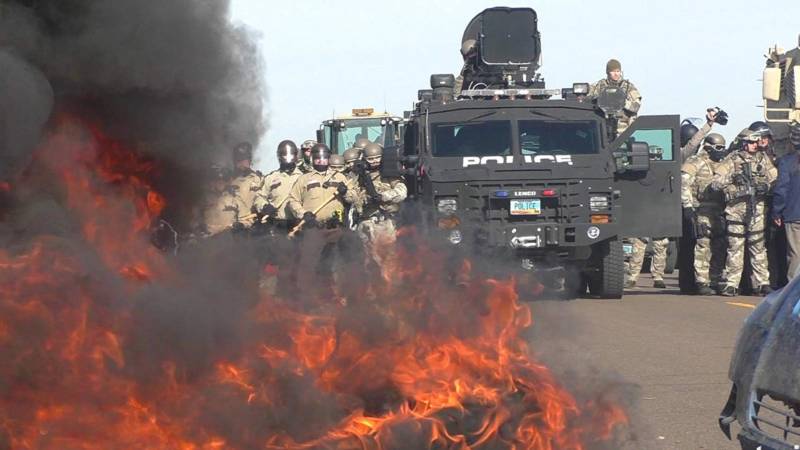For some documentary filmmakers, the toughest trick is balancing journalism and activism. (The challenge for some film critics, it’s fair to say, is separating a film’s quality from its—or the writer’s—politics.) Black Snake Killaz, a frankly one-sided chronology of the quashed Native American protests of the Dakota Access Pipeline in 2016 and 2017, proffers a catalog of events witnessed and filmed by reporters for the nonprofit, internet-based media organization Unicorn Riot. These frontline journalists have produced a surprisingly restrained document that still manages to be deeply infuriating.
Black Snake Killaz, screening Sat., March 2 at the Mission District’s venerable The Other Cinema, adopts the perspective and point of view of the indigenous people of the area. Simply stated, the locals are anxious about the inevitable oil spills and leaks that will contaminate their water supply (based on the petroleum industry’s global track record) and infuriated by a century and a half of broken U.S. Government treaties.
Perhaps that untrustworthiness dictated the reporters’ refusal to interview anyone from the various governments, corporations, banks or law enforcement agencies implementing the pipeline’s construction. But is anyone unclear about—or supportive of—the rhetoric used to justify, at this point in Earth’s climate change, a moronically self-destructive oil pipeline? Far more eloquent than public relations-speak are the nonsense propaganda videos produced by the sheriff’s department, and the shocking images that Unicorn Riot captured of sadistic, hyper-militarized cops confronting nonviolent protestors engaged in civil disobedience.
Black Snake Killaz (the black snake is oil, if you hadn’t guessed, and the would-be killaz are the protestors or, as the film calls them, “water protectors”) is not a great film, and perhaps not even a persuasive one for diehard free-marketers, Humvee owners, law-and-order fetishists and other niche groups. But it is an important document, especially in a culture where everything seems to disappear down the memory hole. If you can’t get to Valencia St. for the screening, you can watch the film here legally.


